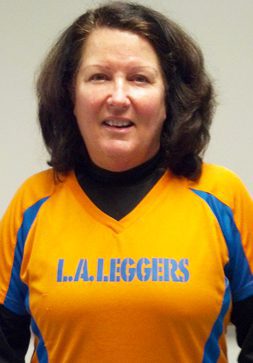Listen to this article
Listen to this article
Loading
Play
Pause
Options
0:00
-:--
1x
Playback Speed- 0.5
- 0.6
- 0.7
- 0.8
- 0.9
- 1
- 1.1
- 1.2
- 1.3
- 1.5
- 2
Audio Language
- English
- French
- German
- Italian
- Spanish
Open text
touched by the people. the eyes have it–deputy b/m david church visits with a young lady at the la aurora girls’ home. by robert docter –. it was the stillness of the room that impacted us first. more than 60 girls between the ages of 7-17 sat quietly at tables–exploring the characteristics of this strange group of visitors. members of the band had just completed a brief tour of the girls’ home in santiago and now were entering their dining room. but it was their eyes that held our attention. wide, brown, excited eyes under dark hair and a body posture that communicated eager anticipation. they are the daughters of prostitutes, throwaway kids by addictive parents, wards of the court, foster children–the “girls from the home.” there was no feeling of resentment at living–no sense of hostility about being placed in an institutional setting –no deadness of eyes, no hardness of hearts, no hopeless depression. and then we met major celia barra and understood completely. she has given her life to them because someone had done the same for her. she had been a young girl in that very home–was raised there, grew to find god there, and now she shares that love with everyone around her. after–the pasadena tabernacle band in front of the freshly painted la aurora girls’ home. she takes great pride in the neat, evenly spaced beds, 12 inches apart–all uniform in each room, yet each having a degree of individuality. she has justification for that pride. the residence was spotless, well organized, colorful and crowded. the girls all go to public school, and all wear uniforms. the uniforms and all the girls’ clothes are washed in a single home size washing machine, then hung to dry behind the home. it is a difficult task. occasionally, the girls are the brunt of hostile remarks from classmates or dismissed as “girls from the home.” their home did not look good from the outside. the three story building was in serious need of a paint job. the next day, the 44 members of the band and timbrels climbed rickety scaffolds, taped extension poles together, donned paint hats, and in a day and a half, painted the entire complex of building and walls on the site. the girls have started calling their home a “palace,” and have sought permission to invite some of their school friends to visit. as the band viewed their work on completion, they collected $800 from their membership for improvements in the laundry. personal contact changes people’s perceptions of need on the mission field.
Open context player
Close context player
Plays:-Audio plays count
touched by the people. the eyes have it–deputy b/m david church visits with a young lady at the la aurora girls’ home. by robert docter –. it was the stillness of the room that impacted us first. more than 60 girls between the ages of 7-17 sat quietly at tables–exploring the characteristics of this strange group of visitors. members of the band had just completed a brief tour of the girls’ home in santiago and now were entering their dining room. but it was their eyes that held our attention. wide, brown, excited eyes under dark hair and a body posture that communicated eager anticipation. they are the daughters of prostitutes, throwaway kids by addictive parents, wards of the court, foster children–the “girls from the home.” there was no feeling of resentment at living–no sense of hostility about being placed in an institutional setting –no deadness of eyes, no hardness of hearts, no hopeless depression. and then we met major celia barra and understood completely. she has given her life to them because someone had done the same for her. she had been a young girl in that very home–was raised there, grew to find god there, and now she shares that love with everyone around her. after–the pasadena tabernacle band in front of the freshly painted la aurora girls’ home. she takes great pride in the neat, evenly spaced beds, 12 inches apart–all uniform in each room, yet each having a degree of individuality. she has justification for that pride. the residence was spotless, well organized, colorful and crowded. the girls all go to public school, and all wear uniforms. the uniforms and all the girls’ clothes are washed in a single home size washing machine, then hung to dry behind the home. it is a difficult task. occasionally, the girls are the brunt of hostile remarks from classmates or dismissed as “girls from the home.” their home did not look good from the outside. the three story building was in serious need of a paint job. the next day, the 44 members of the band and timbrels climbed rickety scaffolds, taped extension poles together, donned paint hats, and in a day and a half, painted the entire complex of building and walls on the site. the girls have started calling their home a “palace,” and have sought permission to invite some of their school friends to visit. as the band viewed their work on completion, they collected $800 from their membership for improvements in the laundry. personal contact changes people’s perceptions of need on the mission field.
Listen to this article













